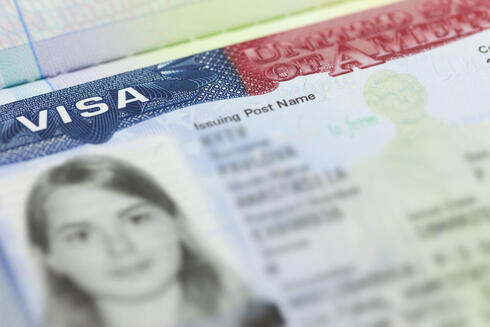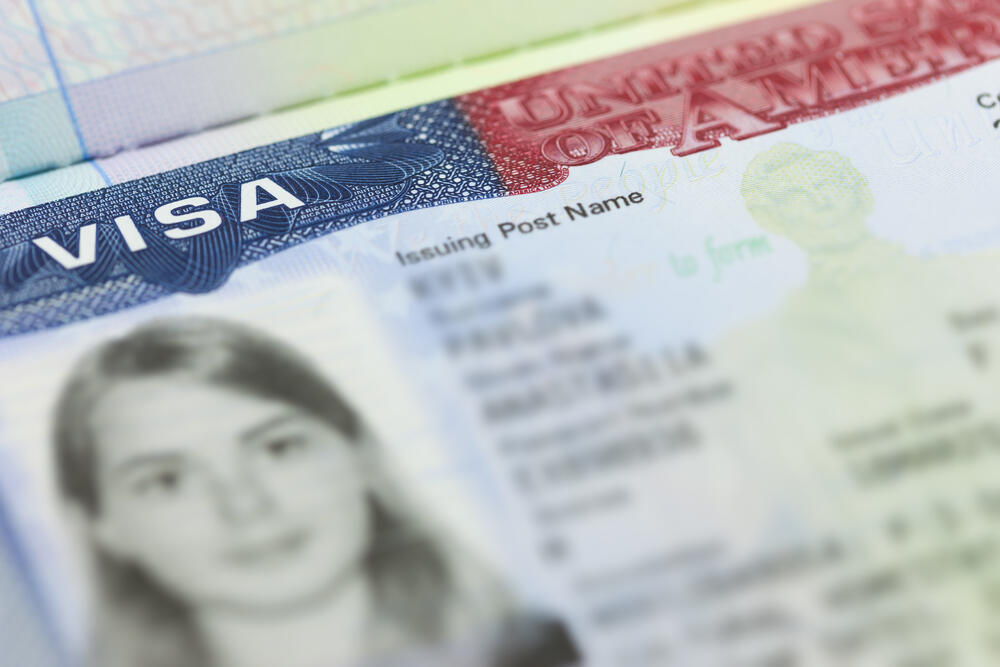
U.S. officially accepts Israel into Visa Waiver Program
Israel will become the 41st country to join the program after extensive negotiations, legislative changes, and significant preparations
The U.S. Homeland Security Secretary, Alejandro Mayorkas, and Secretary of State Antony Blinken jointly announced on Wednesday that Israel has officially joined the list of visa-exempt countries for the U.S. after meeting all the required conditions.
Israel will become the 41st country on this prestigious list, which includes Germany, France, Great Britain, Singapore, Australia, Austria, Denmark, Finland, Greece, Italy, Japan, the Netherlands, New Zealand, Poland, Norway, Switzerland, Sweden, and South Korea. Israel's inclusion in this program has been a long-time goal, and this process gained momentum during the previous government, the Bennett-Lapid administration, when U.S. President Joe Biden declared the U.S.'s commitment to include Israel in the program.
This official statement regarding Israel's visa exemption follows sharp criticism from American officials. They expressed their dismay at the premature announcement by the Israeli Ministry of Foreign Affairs, which appeared before the U.S. officially confirmed the visa exemption for Israelis.
However, after extensive negotiations, legislative changes, and significant preparations within Israel, this achievement can now be celebrated. Credit for this success goes to several individuals, including Thomas Nides, the former U.S. Ambassador to Israel, who spearheaded the visa exemption initiative, Head of the National Security Council Tzachi Hanegbi, who chaired the inter-ministerial committee supporting the effort, former Interior Minister Ayelet Shaked, Israel's Ambassador to the United Nations and former Ambassador to the United States, Gilad Erdan, and attorney Gil Beringer, appointed by Shaked to oversee the visa exemption project.
U.S. Embassy Chargé d’Affaires Stephanie Hallett, congratulated Israel on joining the program, emphasizing the strong security, economic, and cultural ties between the two countries. She also recognized the efforts of Ambassador Nides and Hanegbi, along with numerous Israeli officials from various government ministries who worked tirelessly to meet the program's requirements over the past two years.
Despite the U.S. announcement, Israelis will not immediately be able to use the Electronic System for Travel Authorization (ESTA), a computerized system that checks eligibility for travelers from visa-exempt countries entering the U.S. Instead, they will continue to require entry visas to travel to the U.S. The exact date when Israelis can use the ESTA system is expected to be publicly announced by the U.S. within the next two months.
Once Israel is added to the ESTA system, Israeli citizens will be able to apply for travel authorization through the system, and approval will be granted within 72 hours at a cost of $21. This authorization will remain valid for two years and can be used for multiple trips within that period. However, adult Israelis must have biometric passports valid for ten years to use the ESTA system. Those without such passports will still need to apply for a visa through the U.S. embassies in Jerusalem and Tel Aviv.
Hallett also addressed the hundreds of thousands of Israelis who hold American citizenship, reminding them that they must use their American passports when entering and leaving the U.S., as American law mandates the use of American passports for U.S. citizens.
Israel fulfilled all program requirements, including allowing American citizens of Palestinian origin to enter Israel.















